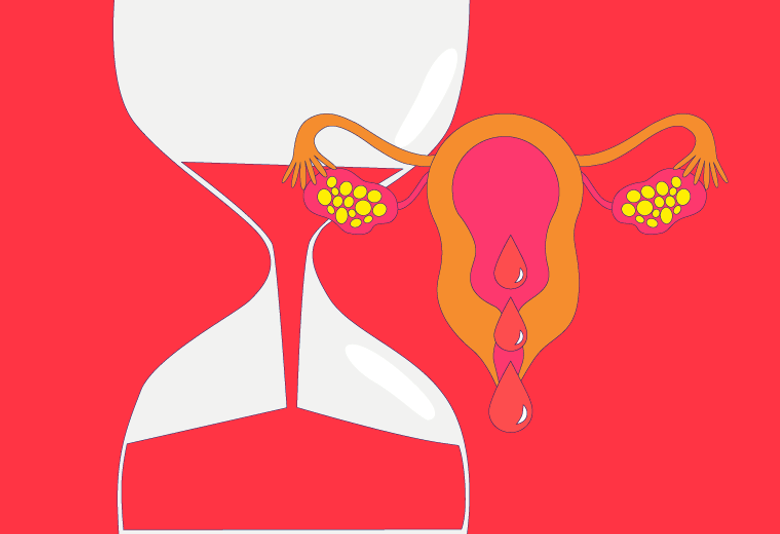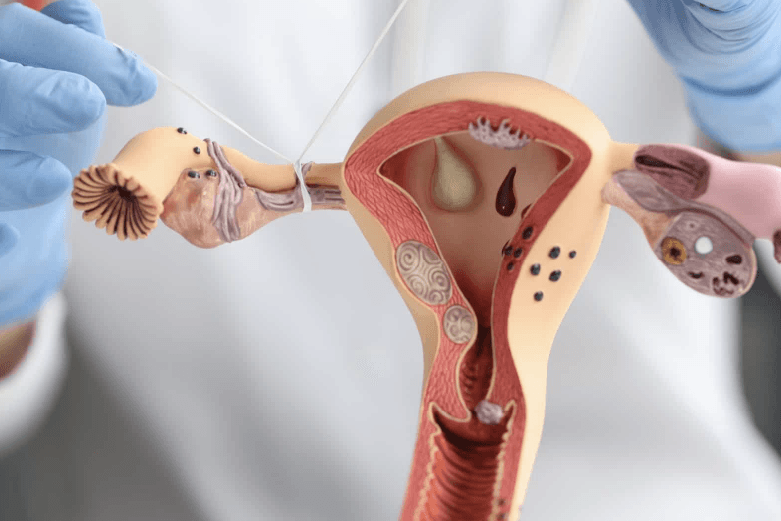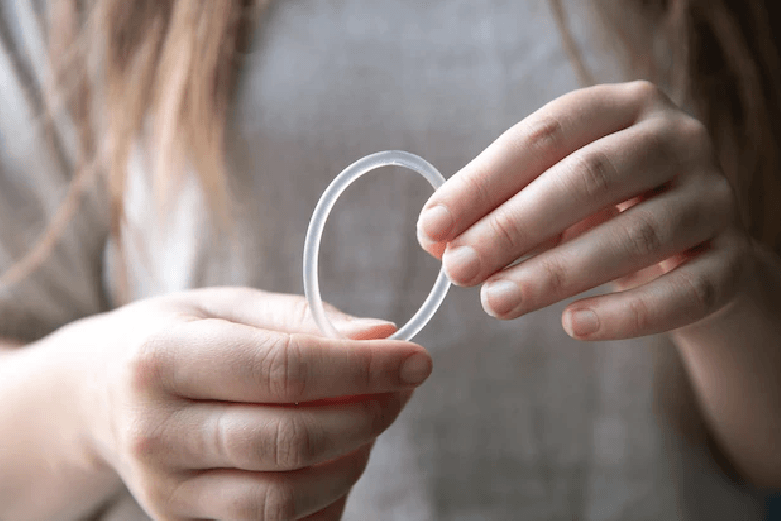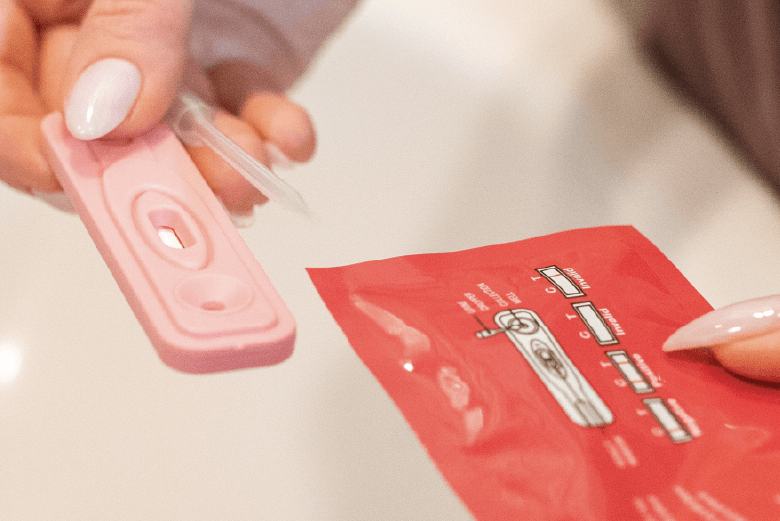The bodies of vagina owners undergo several transitions throughout their lives. At puberty, their breasts start to develop, body hair grows coarser, and they start menstruating too. Similarly, there comes a stage in their lives when their menstrual cycle stops completely. In the period before this transition, their bodies undergo several changes again, for example, they experience irregular periods, hot flashes, or tiredness. This stage is referred to as perimenopause.
What is the difference between perimenopause and menopause
Menopause is when the person has not had a period for 12 months in a row. This happens because of the natural depletion of ovarian hormones. This phase can be experienced as early as the mid-30s or as late as the mid-50s. As the person is nearing menopause, the body undergoes several changes physically and mentally. The duration of this period and the symptoms one would get vary from person to person. Access to healthcare workers and reliable resources would help in making this transitional period, referred to as perimenopause, go much smoother.
Note: you might be interested in our section “What is menopause”
How do you know you are going through perimenopause?
Ovaries produce two main reproductive hormones called progesterone and oestrogen. However, when you enter perimenopause, the production of the hormone oestrogen starts reducing in comparison to the progesterone. This fluctuation of hormones disturbs the menstrual cycle, leading to the irregularity of periods or a heavy flow. The occurrence of such a situation is common while experiencing perimenopause. It is vital to note that the side effects of using hormonal birth control methods can lead to a similar situation of disturbance in the menstrual cycle. For correct diagnosis of the situation, consulting a medical practitioner is always advisable. Other common symptoms are hot flashes, fatigue, breast tenderness, mood swings, vaginal dryness, trouble sleeping, and increased frequency of urination. Importantly, not everyone experiences all these symptoms.
Does perimenopause affect one’s mental health?
The physical changes happening during the period of menopause affects one’s mental health. Episodes of mood swings and anxiety about the future and ageing are common symptoms experienced, even during perimenopause. A counselor can help you navigate this period efficiently.
Can you get pregnant during perimenopause?
Yes, you can get pregnant. This is because, despite the disbalance in the reproductive organs during this period, some eggs are still being produced. Hence, using appropriate contraceptive methods is highly important to avoid pregnancy.
Note: you might be interested on taking on contraception quiz.
What contraception options can you use, then?
Barrier contraceptive methods
Condoms, cervical caps, and diaphragms are the common external contraceptive options that are safe to use for all age groups. However, as vaginal dryness is a common symptom during perimenopause, using lubrication while using condoms can make intercourse easier. While using cervical caps and diaphragms, the use of spermicide is advisable. These options protect against sexually transmitted diseases as well.
Tubal ligation
This method is available for all genders. It involves a surgical process and is nonreversible. If there are complications, they can cause internal bleeding and damage to organs. But, this is not a common side effect at all.
Combined hormonal method
These include the pill, patch, and vaginal ring. The health benefits of using them is that they may reduce period pain and some other common symptoms that occur during this phase, like hot flashes and night sweats. On the other hand, there might be side effects from using these options too, like blood clotting, strokes, or heart attacks; although these are not likely to happen. Another possible prominent side effect of using hormonal methods is that they can cause periods to occur after a long gap. This should not be confused with the arrival of menopause.
Estrogen-specific hormonal methods
Healthcare workers advise perimenopausal people, if they are habitual smokers or suffer from high blood pressure, diabetes, blood clots, estrogenic-dependent cancer, and heart diseases, to avoid estrogen-only hormonal methods.
Progestogen-specific hormonal methods
Using progestogen-only methods may sometimes cause irregular bleeding or no bleeding at all. Medical advice needs to be sought if the bleeding continues for a long time or if menses stops.
Contraceptive implants
Intrauterine devices are suitable contraceptive methods too. The advantage of using an intrauterine device that releases hormones is that they can help in reducing period pain and heavy flow that occurs during periods in the perimenopause phase. If the person is undergoing hormone replacement therapy (HRT), then it can be used to induce the progesterone element of HRT.
Natural family planning
As most people’s menstrual cycles are irregular, natural family planning is an unreliable method to prevent pregnancy during perimenopause.
On a whole, as perimenopausal people undergo several transitions, mentally and physically, getting help from mental health workers can help to navigate this process. Similarly, as every person experiences different symptoms and has a different medical history, the advice of a health practitioner is vital while getting treatment and when it comes to considering options for contraception.
Sources:
- “Contraception for the older women.” Women’s Health Concern, www.womens-health-concern.org/help-and-advice/factsheets/contraception-older-woman/. Accessed July 2022.
- “Contraception: You need it longer than you may think.” The North American Menopause Society, www.menopause.org/for-women/sexual-health-menopause-online/reminders-and-resources/contraception-you-need-it-longer-than-you-may-think. Accessed July 2022.
- “Yes, you can get pregnant during perimenopause – here are the odds and risks.” Mira,
www.miracare.com/blog/ttc-during-perimenopause/. Accessed July 2022. - “What is Menopause?” National Institute on Ageing,
www.nia.nih.gov/health/what-menopause. Accessed July 2022.
About the Author: Pragati Khabiya is an independent consultant from India, passionate about using the tools of communication, advocacy, and facilitation to work for the development sector. She could only discover what she is passionate about after spending time volunteering and travelling by herself at remote organisations in India. She believes in the process of unlearning and likes to read/watch feminstic films and books.
Do you have something to share? Leave your comments below, contact us on our social media platforms: Facebook, Instagram, Twitter, YouTube and TikTok, send us an email to info@findmymethod.org. For more information on contraception, visit findmymethod.org.







